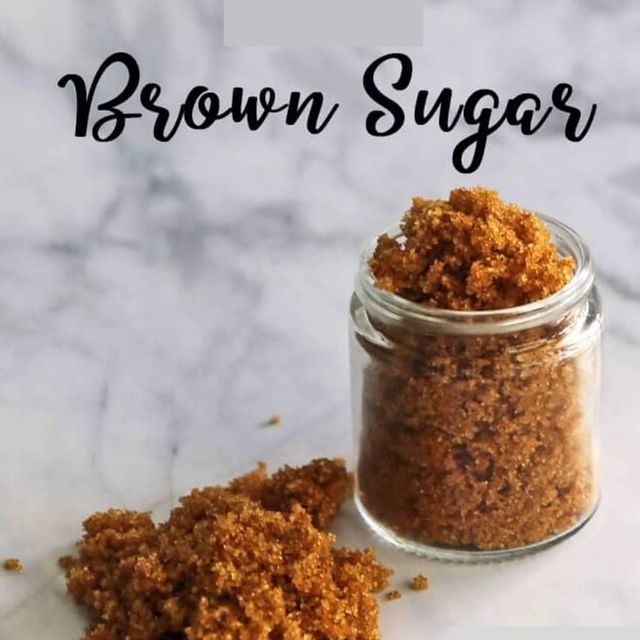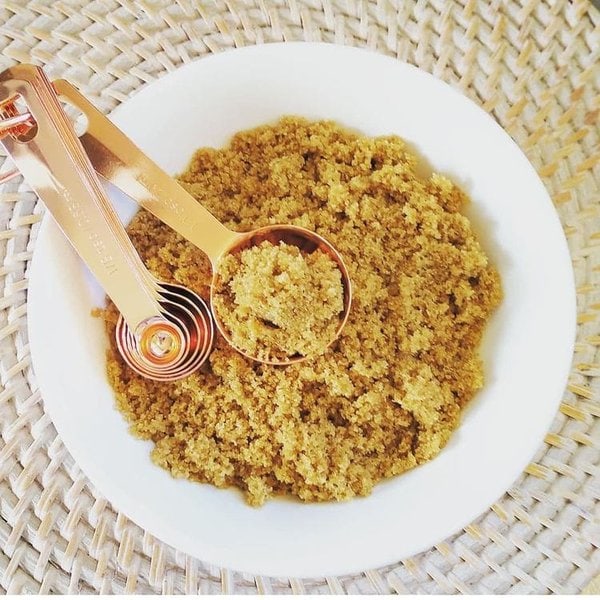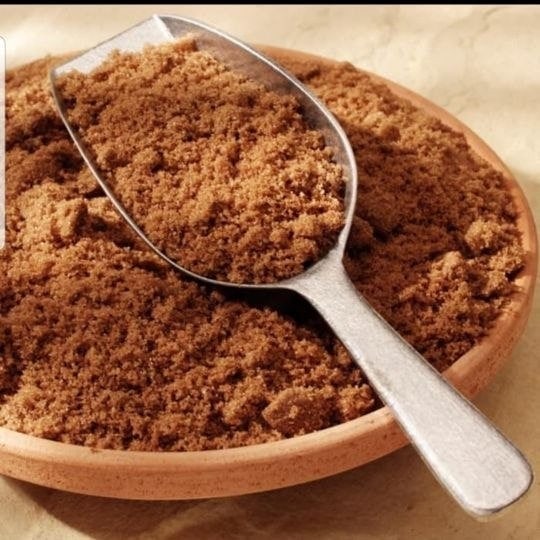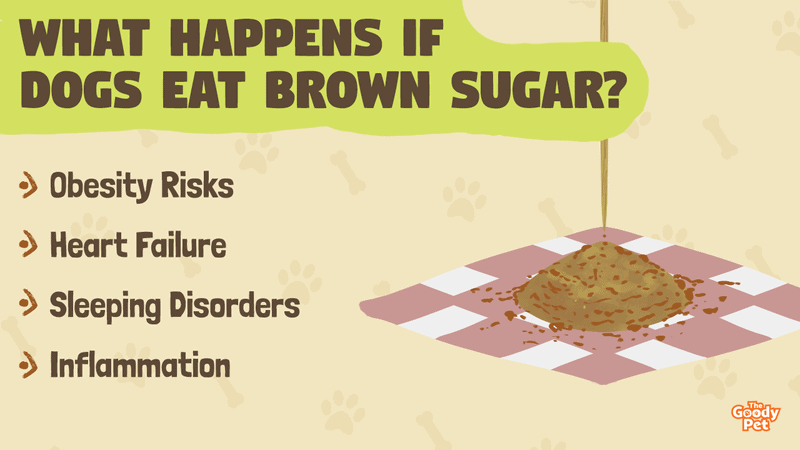Does your pup make heart-melting cute faces to get sweet treats from you? We all have experienced the same situation knowing that brown sugar and chocolate are the most used in treats. Chocolate is already out of the menu for your dog but, what about brown sugar? Would it also harm your pooch?
Brown sugar is not highly recommended for dogs to consume as it can lead to health complications. This type of sugar is equally unhealthy for your dog as any other sweetener because it brings cavities, unhealthy weight gain, and abdominal issues to your pup.
However, you don’t have to battle with your conscience daily to decide whether to provide your pup with brown sugar or not. You can feed treats containing brown sugar to your dog in a moderate amount, not regularly but after a day or two.
Moreover, we will tell you the three main reasons why you shouldn’t feed it to your pup. So, let’s get into it!
What Happens If Dogs Eat Brown Sugar?

Brown sugar can increase your dog’s heart rate and sometimes cause heart failure, which has a massive effect on the pup’s health. If your dog consumes excessive brown sugar, it can cause inflammation, cancer, type II diabetes, and other chronic conditions.
Here we have listed the three main reasons why your pup shouldn’t eat brown sugar:
Obesity Risks
If your dog consumes a large amount of brown sugar, it can cause obesity. Besides that, your pup can suffer faster degeneration in joints induced by obesity due to brown sugar.
Moreover, brown sugar also causes cancer, hypertension, diabetes mellitus. Excessive brown sugar can also bring osteoarthritis or urinary stones to your pup.
Heart Failure
When dogs eat brown sugar, they tire out more easily as their stamina also gets reduced, and this is where dogs do not walk or play as they did previously. Plus, it will cause coughing and swelling in your pup’s belly, and both of which are the signs of heart failure in canines.
When the speed of poor venous blood return becomes insufficient due to blood thickening caused by brown sugar, the right side of your pup’s heart fails.
But if the left side of your pup’s heart has failed. It means that instead of pushing the blood into the systemic circulation, the heart is pumped. Therefore, some blood leaks through and backs up into the lungs.
Sleeping Disorders
Just like humans, sleep is a critical factor for a healthy, energetic life as it keeps your pup healthy and energized. Eating brown sugar can cause four different types of sleep orders including, insomnia, narcolepsy, REM Behavior, and sleep apnea.
Insomnia due to blood thickness is quite common in dogs now, and these sleep disorders derive more health issues in canines. Therefore, it’s better not to let your pup consume brown sugar.
Is Brown Sugar Toxic For Dogs?

Brown sugar is not toxic for dogs, but yes, it can cause unhealthy weight gain, stomach aches, and tooth decay if consumed too much.
However, you can still make brown sugar treats for your puppy and serve him one treat after every one or two days. If you feed brown sugar with a perfect serving and moderate amount, brown sugar can be a good dog food sweetener. Let’s get into some other artificial sweeteners that your pup should avoid.
What Other Artificial Sweeteners Should Dogs Avoid?
Caramel
Caramel is generally safe, but it can cause allergic reactions in your pup. Furthermore, it can increase blood pressure and reduce your pup’s white blood cells.
Corn Syrup
Corn syrup is sweeter than regular sugar, and we know that dogs should avoid sweet things. Eating corn syrup can lead to obesity, insulin resistance, high blood pressure, and diabetes in your puppy. Moreover, it can also cause triglyceride and metabolic syndrome to your little furry friend.
Sucrose
Sucrose is proven to be safe for us, but it still contains some harmful effects for dogs, as our little fellows are more sensitive. So, sucrose can cause constipation, muscle cramps, taste changes, ear pain, fever, back, leg, and arm pain, and energy reduction.
Beet Pulp
Beet pulp, even though, sounds tasty but is not very healthy for your pup. Besides being a sweet drink, it comprises a high level of potassium, which is not suitable for dogs. It also contains nonstructural carbohydrates, which cause the dog to go overboard.
Sorbitol
Sorbitol is not poisonous to dogs, but still, it can cause vomiting, lethargy, and a racing heartbeat. Don’t forget that sorbitol is an artificial sweetener like xylitol. However, it’s not as toxic to a dog as xylitol, but still, it can bring gastrointestinal distress to your pup.
Honey
Honey comes with the highest level of sugar in it, which is toxic for dogs. This high sugar content can lead to obesity if fed regularly to your puppy without proper exercise and balanced nutrition. Moreover, honey can also cause cavities in your canine’s tooth as it is sweet enough.
Molasses
Molasses is an excellent alternative to sugar, but it would be risky to feed it to your dog. Because when accidentally consumed in a higher amount, it can cause severe health issues to your dog. Moreover, if your puppy is diabetic, molasses can be more harmful to your pup, and molasses consumed in high amounts can also cause diarrhea and abdominal issues.
Can Dogs Eat Brown Sugar And Cinnamon?
Yes, consuming a treat dipped in cinnamon and brown sugar doesn’t hurt the dog. However, make sure not to feed it regularly to your puppy.
Sometimes sugar can also benefit your pooch but only the naturally driven one. It is also essential for dogs to consume sugars to produce carbohydrates in their body. Except for brown and white sugar, sugar from fruits and veggies are suitable for your pup’s health.
Let’s dig deeper and find the different types of fruits and vegetables that can fulfill your pup’s carbohydrates and sugar requirements.
Apples
Apples are an exceptional addition to your furry friend’s diet. Not only does it comprise a lot of dietary fiber, vitamin A, and vitamin C, but it also helps keep your puppy’s teeth clean. Moreover, when feeding apples to your pup, make sure that you don’t overdose on them. Serve only one slice or two to your canine a day.
Blueberries
Blueberries are a great source of sugar for dogs whether you feed them dried, frozen, mashed, or frozen to your pup. Other than that, it only contains 84 calories per cup, which is just perfect for your dog to consume even if your furball is a diabetic.
Blueberries offer fiber, vitamin K, vitamin C, and antioxidants that make it a perfect low-calorie and immune-friendly treat.

Pears
Pears are enriched with 10 grams of sugar, potassium, vitamin A, and calcium, making them a complete nutritious dog treat. It comprises 4.5 grams of dietary fiber per cup that keeps your puppy’s digestive system healthy.
Moreover, pears have vitamin K, C, and a high amount of copper with a balanced amount of sugar, making it a perfect low-calorie dog treat.
Carrots
Carrots are not just good to feed to your dogs in commercials but also in daily life. It contains 72.5 grains of sugar and vitamin A, which helps keep your puppy’s eyes healthy and boost their immune system making their coat and skin healthier and shinier.
Moreover, you can easily feed your dog two to three baby-sized carrots as it contains only a moderate amount of sugar, which won’t hurt your pup.
Sweet Potatoes
As the name “sweet potato” implies, you must be thinking that there will be too much sugar in it. However, you won’t believe that sweet potatoes have only 64.8 grains of sugar, even less than carrots.
Feeding sweet potatoes to your pooch aids in digestion and helps promote a healthy microbiome. Other than that, with its low-calorie count, sweet potato doesn’t overload the particular ten percent of your pup’s daily diet.





